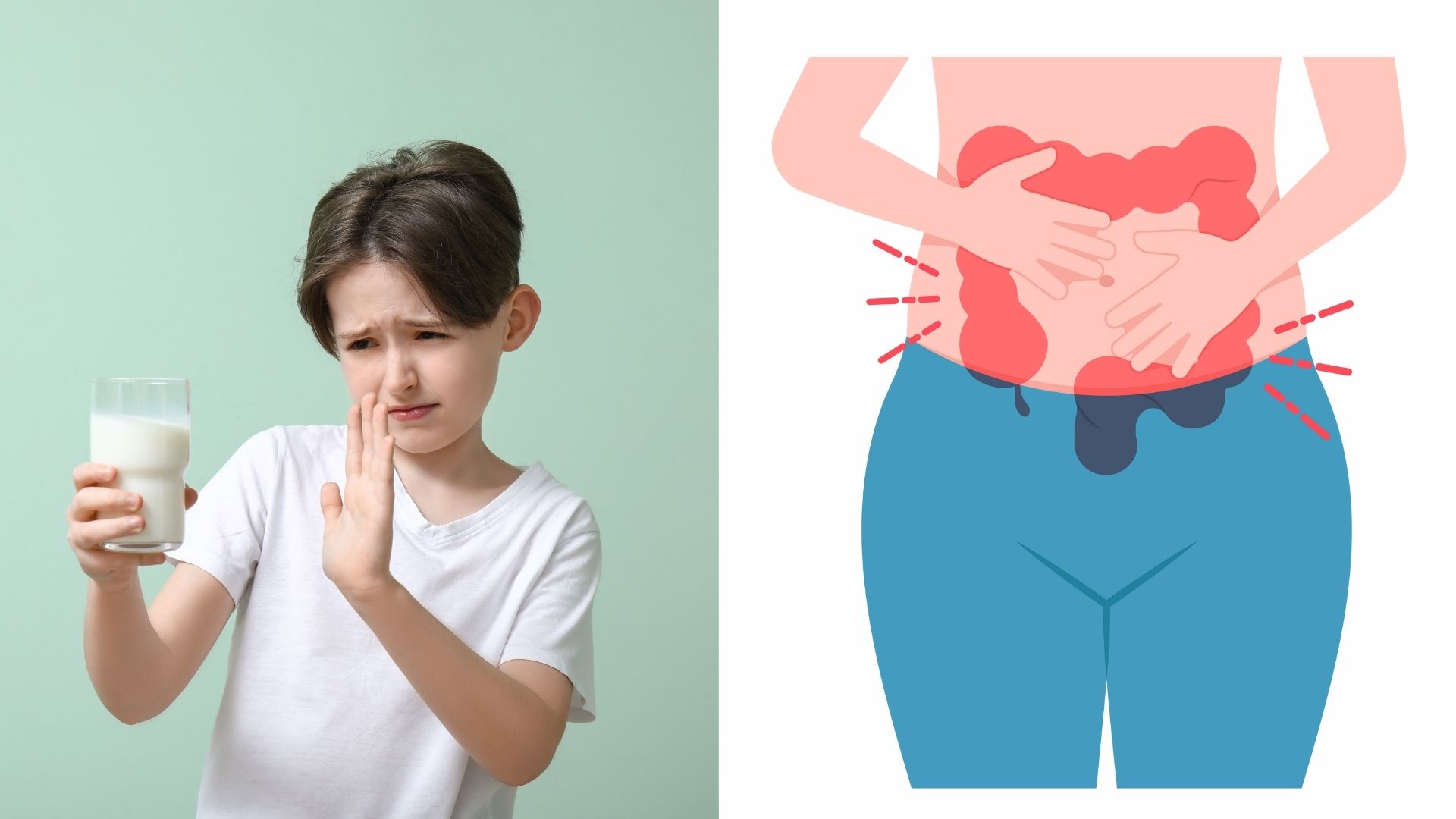Symptoms of lactose intolerance
Worldwide, more than 70% of adults are lactose intolerant. Children under 5 years of age rarely have the condition. Symptoms of lactose intolerance in adults, which only occur after consuming lactose, may include:
- Abdominal cramps
- Bloating
- Nausea
- Diarrhea
These symptoms usually appear half an hour to several hours after eating dairy products. Usually, the severity of the symptoms corresponds to the amount of allergenic food or drink consumed.

Causes of lactose intolerance
Lactose is a natural sugar found in milk and dairy products. Your small intestine produces an enzyme called lactase to break down this sugar for digestion. When lactase is not enough to digest lactose, you may experience abdominal discomfort. This condition is called lactose intolerance.
Sudden lactose intolerance
For many people, the condition seems to come on suddenly, even if they have never had a problem eating or drinking products containing lactose before.
Lactose intolerance can be caused by illness, injury, or surgery that affects your small intestine.
Lactose intolerance in children
Although this condition is most common in adults, it can also affect children as young as 2 years old. If your child is lactose intolerant, the condition may be a lifelong problem or may outgrow it.
Foods that cause lactose intolerance
Because lactose is a natural sugar found in milk, cheese, and other dairy products, people with lactose intolerance will experience symptoms whenever they consume one of those products.
Foods that commonly cause lactose intolerance include:
- Milk
- Cream
- Cheese
- Smoothie
- White sauce made from milk
- Foods cooked with cheese, such as pizza
- Dessert cream filling
- Custard and pudding
- Fresh cream
Some people may become lactose intolerant from consuming certain foods but not be affected by others.
Lactose intolerance or milk allergy?
Milk allergy is not the same as lactose intolerance. With milk allergy, the immune system turns against the proteins in milk, even though they are not harmful.
The symptoms of a milk allergy are different from the symptoms of lactose intolerance. If you or your child has an allergic reaction to a milk product, call 911 or go to the hospital immediately.
Symptoms of milk allergy include:
- Swelling of the face, lips, tongue or throat
- Itching or tingling in the lips
- Hives
- Cough, shortness of breath
- Short of breath










